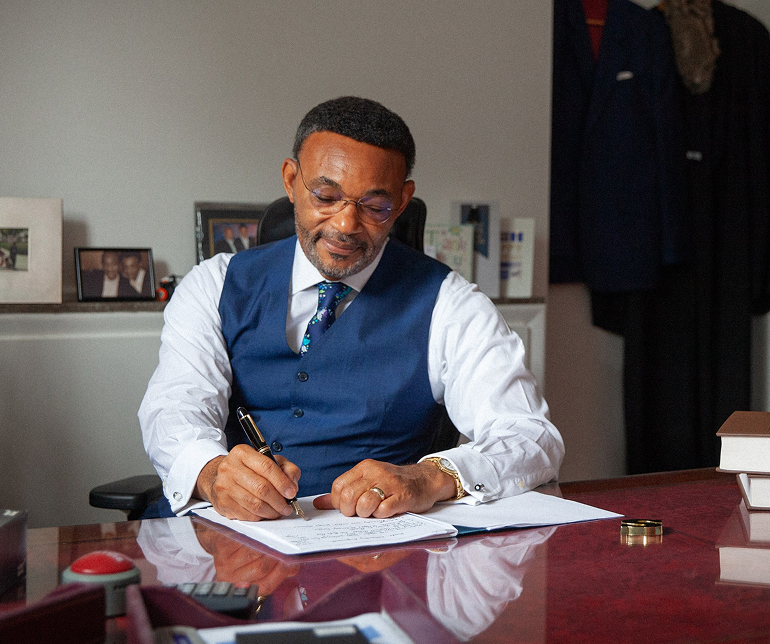Construction, Dispute Resolution
What is the Difference Between Solicitors and Barristers in the UK?
- Written by: Samuel Okoronkwo
- Published on:


Share
The average person may not be aware of the difference between solicitors and barristers, however, these two professions play distinct but complementary roles within the UK legal system. For clients involved in complex legal matters, particularly in areas like construction disputes, commercial litigation, or property law, understanding the difference between these two professions is essential.
At Mercantile Barristers, our specialist barristers are frequently instructed by both solicitors; corporate clients; and private individuals directly. But what exactly is the difference between solicitors and barristers, and how do they work together?
The Role of Solicitors
Solicitors are typically the first legal professionals consulted when a legal issue arises. They provide general legal advice; manage client affairs on an ongoing basis; and often have long-term relationships with individuals and businesses.
A solicitor’s responsibilities include:
-
Advising clients on their legal position and potential strategies
-
Drafting contracts, letters, and legal documents
-
Managing transactional matters (e.g. conveyancing, commercial contracts)
-
Negotiating settlements
-
Preparing litigation for court
Solicitors often handle a broad range of legal issues. While some may specialise, such as construction solicitors or corporate solicitors, they will usually instruct a barrister when a case requires specialist legal counsel/opinion; or advocacy, especially in the High Court, Court of Appeal, or Supreme Court.
The Role of Barristers
Barristers are legal specialists who are trained primarily in advocacy. Their skills can be deployed for use in a variety of areas, from fact finding inquiries to dispute resolution. They are usually instructed when a matter is contentious or when a legal issue demands detailed interpretation and opinion of the law.
Barristers are often brought into a case for their objective perspective, deep legal analysis, and courtroom experience. In summary:
Barristers are often instructed to:
-
Represent clients in court or alternative dispute resolution such as arbitration; mediation; and early neutral evaluation
-
Provide independent legal opinions (known as a “Counsel’s Opinion”)
-
Draft complex legal pleadings or submissions
-
Advise on the merits of a case or appeal
Working Together: The Two-Tier Model
The UK legal system operates on a split-profession or two-tier model. While solicitors and barristers are both qualified lawyers, they function at different stages of a case.
In practice:
-
The solicitor manages the client relationship, prepares the groundwork, and handles the procedural aspects.
-
The barrister is brought in to deliver specialist advice or advocacy, particularly when a matter escalates.
However, since the introduction of the Legal Services Act 2007 private individuals and companies, are able to have ‘direct access’ to barristers, meaning a barrister can be instructed directly without needing a solicitor. This allows for potentially lower costs and greater control over one’s case, and speed up access to expert advice, especially useful in construction adjudication, commercial disputes, and interim injunctions. However, this may also mean taking on some of the preparatory work traditionally handled by solicitors.
At Mercantile, our barristers are qualified to accept instructions under the Public Access Scheme, and we regularly advise property developers, contractors, professionals, and entrepreneurs without the need for a solicitor intermediary with particular expertise in:
At Mercantile Barristers, our team offers particular expertise in:
-
Construction adjudication and arbitration
-
Commercial and contractual disputes
-
Property and landlord-tenant litigation
-
Planning disputes
-
Insolvency
When Should You Choose a Barrister?
You may wish to go directly to a barrister if:
-
You need a specialist legal opinion on a commercial or construction matter
-
Your dispute is heading to court, adjudication, or arbitration
-
You want to explore strategic options for resolving a dispute
-
You require urgent legal advice on matters like breach of contract, misrepresentation, or professional negligence
Choosing a barrister at the right stage can provide clarity, confidence, and commercial efficiency — particularly when working with a modern, business-focused set like Mercantile Barristers.
So, what is the difference between solicitors and barristers? Both solicitors and barristers are essential pillars of the UK legal system, they serve distinct functions. Solicitors provide continuous legal support. Barristers can also do this but additionally offer focused expertise in advocacy and complex legal analysis.
Whether you’re a business owner; contractor; or developer facing a dispute, understanding the difference between solicitors and barristers can put you in a better position to navigate these difficulties. The experienced team at Mercantile Barristers can help you navigate your legal issue with precision, professionalism, and a deep understanding of commercial realities.
contact us
Contact Samuel Okoronkwo
Get in touch today to speak directly with Samuel Okoronkwo for expert legal advice and assistance.



